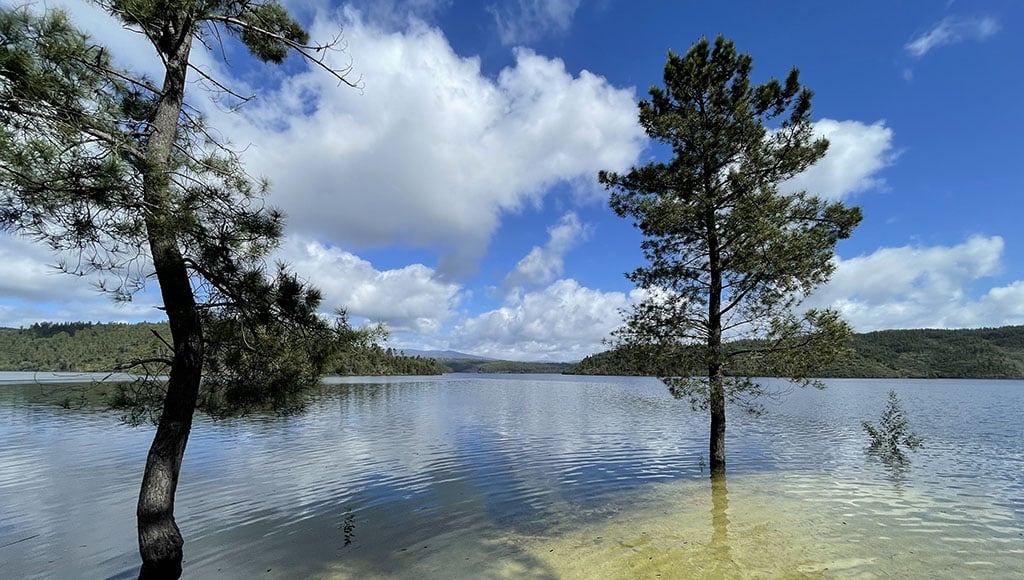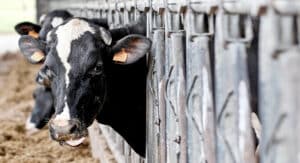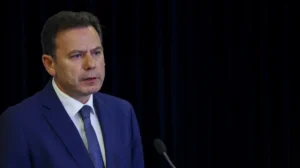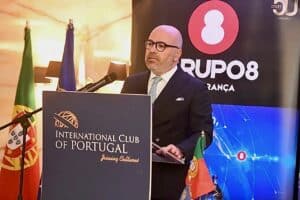Sustainable water platform says strategy “leaves too many questions hanging”
PAS, the acronym for the Sustainable Water Platform*, has issued a press release today, dubbing the outgoing government’s “Water that Unites” strategy as “incomplete and contradictory”.
Considering this is a strategy that hinges on the willingness of the next government to implement, it may be that the ‘Water that Unites’ blueprint never sees much more in the way of light of day.
But if it does, PAS will be ready to challenge it, and demand that its myriad measures are subject to Public Consultation, “allowing civil society to express their doubts, and give suggestions on this theme, vital for our collective future”.
Credit where it is due
Acknowledging that, like the curate’s egg, there are good parts to the ‘Água que Une’ plan, PAS outlines them as “measures planned to reduce water losses in Urban Systems and Public Hydro-Agricultural Projects, as well as all the measures to improve the monitoring and management of these systems (e.g. Programme for the Full Digitalisation of the Water Cycle).
“We also consider the proposal to increase the provision of Water for Reuse (ApR) – Água + Circular Programme to be positive.
But that is where the ‘good parts’ end, as PAS “notes that the main line of action, particularly in the Algarve, continues to be, as a priority, increasing the supply for intensive agriculture, which is increasingly dependent on increasing volumes” of water.
This focus “will feed a vicious cycle that generates even greater consumption, instead of reducing it, as would be desirable, to face the challenges posed by climate change, namely the increase in water scarcity”, PAS points out.
“Measures such as the construction of new dams (Foupana and Alportel), the raising of existing structures and interconnections between river basins (water transfers), initially placed as the last priority (PREHA), now appear as the central axis of the strategy, which demonstrates a reversal of priorities previously defined and, furthermore, in opposition to the EU strategy, expressed in the European Green Deal (legislative package Objective 55), scheduled to be implemented by 2023, which does not envisage funding new dams.
“In addition, the construction of the Foupana dam, for example, is not justified by the water conditions, since the flow is notoriously insufficient throughout the year.
“Another critical aspect of building large infrastructures is their environmental impact”, PAS continues.
“In the strategy now being presented, nature-based solutions and efficient water management remain the poor relations. Examples of this are the amounts allocated to the measures proposed to implement nature-based solutions: €0.25 million for ‘Studies on the Ecological Flow Regime in Dams’, and €50 million, with a source of funding to be determined, for the Pro-Rios 2030 Programme (in preparation), while, for example, the costs of the study to assess the feasibility of building the Girabolhos/Mondego Multipurpose Dam is €300 million and the construction of the Alqueva-Mira Interconnection is €35 million.
“With this in mind, we continue to argue that the two major infrastructures planned for the Algarve – the Seawater Desalination Plant and the Pomarão Water Intake – are inadequate for the following reasons:
– They require large public investments which, taken together, will not even compensate for the losses in the networks that currently exist;
– There is no guarantee that water will actually be made available – at the Desalination Plant, because production will be suspended if monitoring detects (foreseeable) damage to the ecosystem, and at the Pomarão Water Intake, because (the entity managing the Alqueva dam) itself stated in the public consultation that there won’t be enough flow to guarantee the intake;
– Both infrastructures have environmental impacts that are as yet unknown, but are expected to be very high;
– They have high and irreversible economic, social and landscape risks.
“To summarise, these projects, classified in point 4 of the (government’s) strategy as ‘medium-term measures to increase the resilience of the supply system’, instead of increasing the region’s resilience, will make it more energy dependent, increase its ecological footprint, and damage or even extinguish ecosystems affected, and so increase its vulnerability to water scarcity”.
PAS has its own suggestions
PAS believes that, in the short term, the following should be done:
– Define an effective governance structure, with integrated policies and prioritised actions to be carried out by the various entities involved. Structure water governance as advocated in ‘Water that Unites’ – there are numerous entities involved at various levels in water policy, planning and management, often operating autonomously and without coordination with other entities.
– Strict planning and licensing of economic activities should be prioritised, in accordance with water availability. Legislation on the licensing of agricultural activity (the largest user, agriculture accounts for 73% to 75% of consumption) should be created and enforced, and changes to the agricultural production system should be encouraged, focusing on a model of regenerative agriculture, adapted to the climate, with nature-based solutions.
“As structuring measures, priority actions should be aimed at creating conditions that favour increased rainfall and water retention in the territory:
– Actions to conserve the soil which, through its organic matter, is the main factor in retaining rainfall and the largest terrestrial carbon sink;
– Reforestation with endemic, diverse and resilient species, and proper maintenance of these plantations;
– Restoring nature – recovering the water and carbon cycles, rehabilitating water lines, moisturising the landscape, regenerating and maintaining ecosystems, etc.
In short, PAS agrees with the measures focused on improving governance, management and efficiency of water use, but disagrees with measures dedicated to increasing water supply, based on environmentally-damaging infrastructure.
“Furthermore, we believe that, should the ‘Water that Unites’ Strategy be considered by the next government, the document should be subject to public consultation” so that civil society gets the chance to fully discuss the management of a resource that is vital for everyone’s future.
*PAS is made up of: A Rocha Portugal; Água é Vida; Associação Amigos da Formoa– Associação de defesa do património ambiental e cultural;; AlBio-Associação Agroecológica do Algarve; Almargem – Associação de Defesa do Património Cultural e Ambiental do Algarve; CIVIS – Associação para o Aprofundamento da Cidadania; Ecotopia – Associação Ambiental e de Desenvolvimento Sustentável; FALA – Fórum do Ambiente do Litoral Alentejano; Faro 1540 – Associação de Defesa e Promoção do Património Ambiental e Cultural de Faro; Glocal Faro; LPN – Liga para a Proteção da Natureza; Probaal – Associação para o Barrocal Algarvio; Quercus – Associação Nacional de Conservação da Natureza; Regar; ZERO – Associação Sistema Terrestre Sustentável.




















